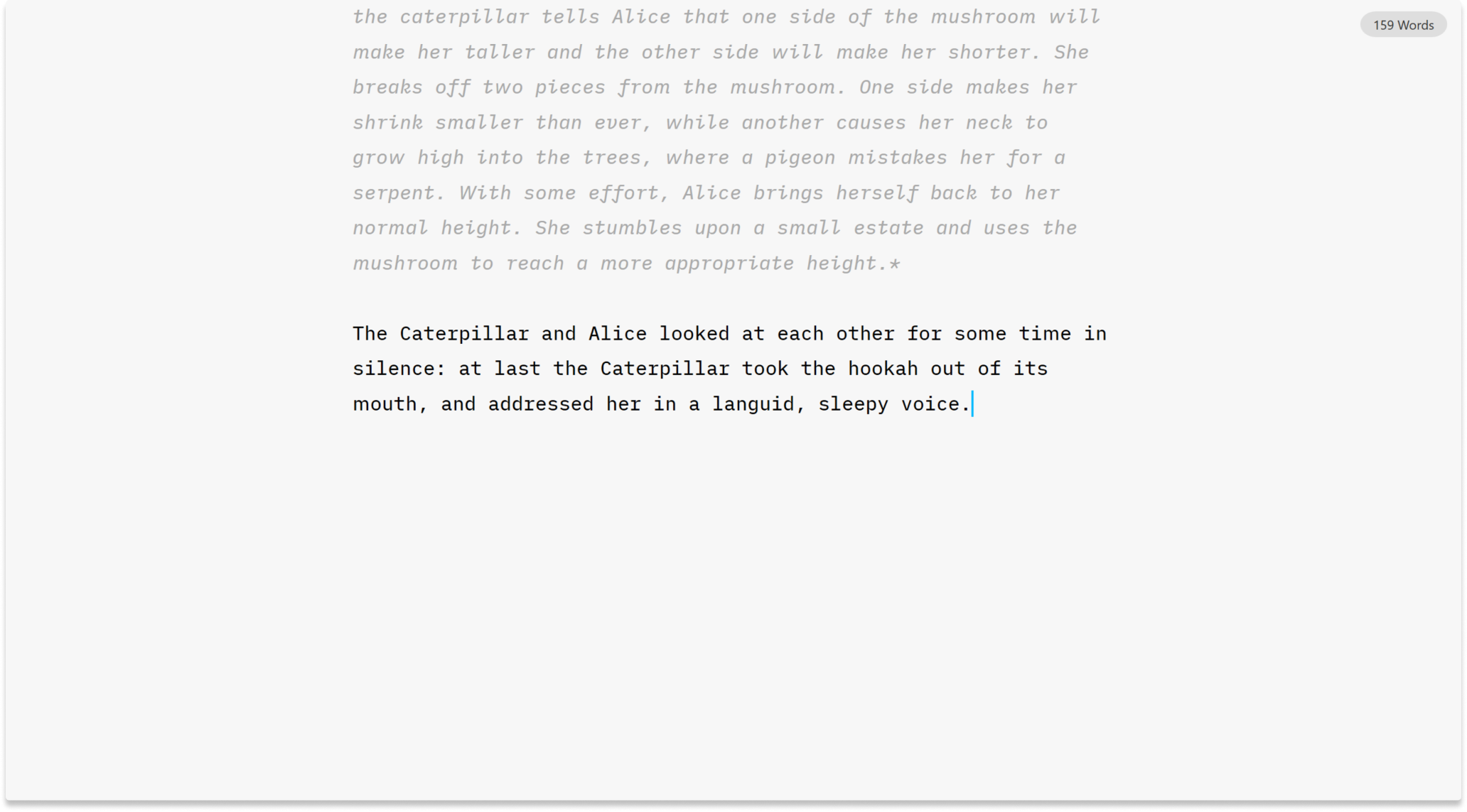In this series of posts we’ll help you decide on a story, build a writing routine, create characters and worlds, write an outline, do research—and help you keep up the momentum.
Let’s start off by selecting your topic, finding the driving question, and setting up your basic daily routine. What type of story makes you smile? Something light and harmless? Thrilling suspense? Aliens and spaceships? Perhaps a romantic tale? What unique characters, setting or atmosphere do you remember?
1. Find Your Call
Do this first: Take the time to go through your bookshelf or e-reader archives. Look for a topic that genuinely excites you, something that can keep you engaged and energized to the very end. Think about what you want to say, what gives you pleasure to express. Your goal here is to make sure that you enjoy the writing process from beginning to end.
“For about 6 years now, in the time it’s taken to write my biography of John Adams, I have largely abandoned reading anything written in our own day. For along with research of the kind to be expected with such a book, I have been trying as much as possible to know Adams through what he read as well as what he wrote, and the result has been one of the most enjoyable forays of my writing life.” –David McCullough
Want to write about something that’s popular right now? No problem. Just don’t write to impress others. Writing should be joyful—it’s all about you having fun.
2. Gather Source Materials
Once you know what you want to write about, dive into similar books to see what other writers say on the topic. Most writers are avid readers who draw inspiration from others.
Explore interviews, podcasts, and videos featuring authors discussing their writing process.1
“When I began working on this project in 1996, my goal was simply to write a dramatic account of the battle. I had been struck by the intensity of the fight, and by the notion of ninety-nine American soldiers surrounded and trapped in an ancient African city fighting for their lives. My contribution would be to capture in words the experience of combat through the eyes and emotions of the soldiers involved, blending their urgent, human perspective with a military and political overview of their predicament.” –Mark Bowden on Black Hawk Down
Before you start writing you’ll want to have a clear story in mind—but don’t worry if you don’t. If you’re still searching for a topic, try:
- Adapting a plot from a movie, book, real-life event, or even a news story
- Retelling an old story in a modern setting—like the Epic of Gilgamesh, set in New York
- Translating a story from a different cultural setting into your own
- Transforming a friend, family member, or your future self into a character. Go people-watching for inspiration
- Creating unique a setting, for example a haunted gym, or a village that farms stars. Anything’s possible!
Once you’ve settled on a topic, try to find the driving question behind your story.
“Who done it? Guilty or not guilty? Who will win the race? Which man will she marry? Will the hero escape or die trying? Will the body be found? Good questions drive good stories.” –Roy Peter Clark, Writing Tools: 55 Essential Strategies for Every Writer
Your goal is to create a general story concept and a driving question. Leave the detailed outlining for later.
3. Start a Writing Routine
Prepare yourself for daily writing, as if you’re building up your endurance for running a marathon. If you aim to write up a shortish 50,000-word book in 30 days, it comes to around 30 days at 1,667 words per day—about four pages. Of course, that excludes planning, outlining, revisions—and the simple fact that you’re still living your life: work, family, friends, pets, and countless other distractions.
Still, four pages a day doesn’t sound like much, right? And it isn’t—not if you get into a strong writing routine.
Start small. Instead of four pages a day from the start, write one page. That comes to around 420 words each day. Make a note of how long it takes to write a page and try to increase your daily writing time gradually. Don’t even try to write something good. Just write that one page for now.
“I believe that the so-called “writing block” is a product of some kind of disproportion between your standards and your performance.… One should lower his standards until there is no felt threshold to go over in writing. It’s easy to write. You just shouldn’t have standards that inhibit you from writing.” Stafford, from Writing the Australian Crawl
You don’t even need to start writing your novel just yet; that’s for later. For starters, write anything that inspires you: journal entries, character descriptions, short stories… If you’re stuck, check our emergency writing toolkit.
Make Friends with iA Writer
iA Writer is a minimalist writing app that gives you focus and helps you write faster. If you haven’t tried it yet, download it now and start a free week-long trial.
Once you have Writer up and running, try out these features:
- Word Count keeps a real-time tally of how much you’ve written. On the Windows version, you can even set a word count goal
- Focus Mode gives you a distraction-free environment—super useful for helping reach your daily goal
- Use Shortcuts and Markdown to quickly format your text, while keeping your hands on the keyboard where they belong

In the next part of the series we’ll cover crafting characters and world building.
-
Writers talking about their creative process: Katherine Paterson, Podcast: Storytelling from Legacy Authors, Five Tips for Writing Your First Novel—Brandon Sanderson. ↩





